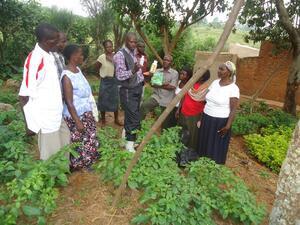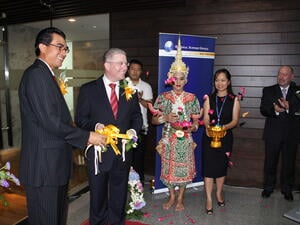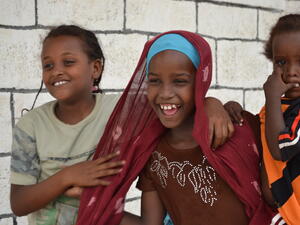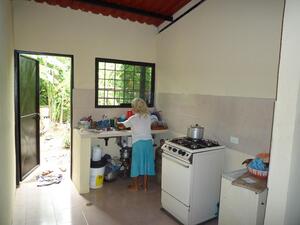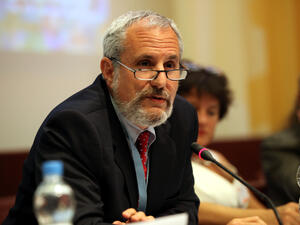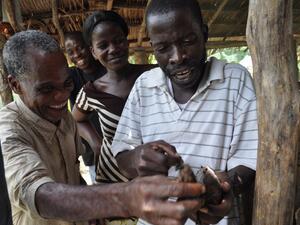Uganda's progressive Refugee Act becomes operational
Uganda's progressive Refugee Act becomes operational

UNHCR Representative Stefano Severe (left) and Prime Minister Apolo Nsibambi (first from right) join two other dignitaries at the World Refugee Day ceremony.
KAMPALA, Uganda, June 22 (UNHCR) - In 2006, Uganda adopted refugee legislation that was regarded as a model for Africa, recognizing the right of the country's more than 140,000 refugees to work, move around the country and live in the community, rather than in special camps.
But before it could be enforced, the government and parliamentarians needed to pass a range of bylaws. This happened in May and the Refugee Act 2006 was formally launched by Prime Minister Apolo Nsibambi at a ceremony last Thursday in Kampala to mark World Refugee Day.
"Asylum seekers have been accorded a very good law, which embodies some of the best regional tenets on refugee law," said Stefano Severe, UNHCR's representative in Uganda.
The legislation clearly enumerates the rights of refugees, as well as their obligations in Uganda. It defines who is a refugee and it is gender sensitive. The law outlines the process to be used in determining refugee status. It also sets forth how a refugee situation can cease, once durable solutions have been found.
The freedoms enshrined in the law include the right to work, freedom of movement and the right to live in settlements rather than in refugee camps. Prime Minister Nsibambi noted that refugees "are given opportunity to fend for themselves by growing crops, attain food security and avail themselves of other human basic needs."
The Ugandan leader stressed that the Refugee Act 2006 "epitomizes Uganda's unwavering liberal policy towards refugees who seek protection here until they feel it is safe for them to return to their countries of origin."
Most of the more than 140,000 refugees in Uganda come from neighbouring countries, including Burundi, the Democratic Republic of the Congo, Kenya, Rwanda and the Sudan. There are also hundreds of thousands of internally displaced Ugandans in the north of the country.
By Vanessa Akello in Kampala, Uganda


